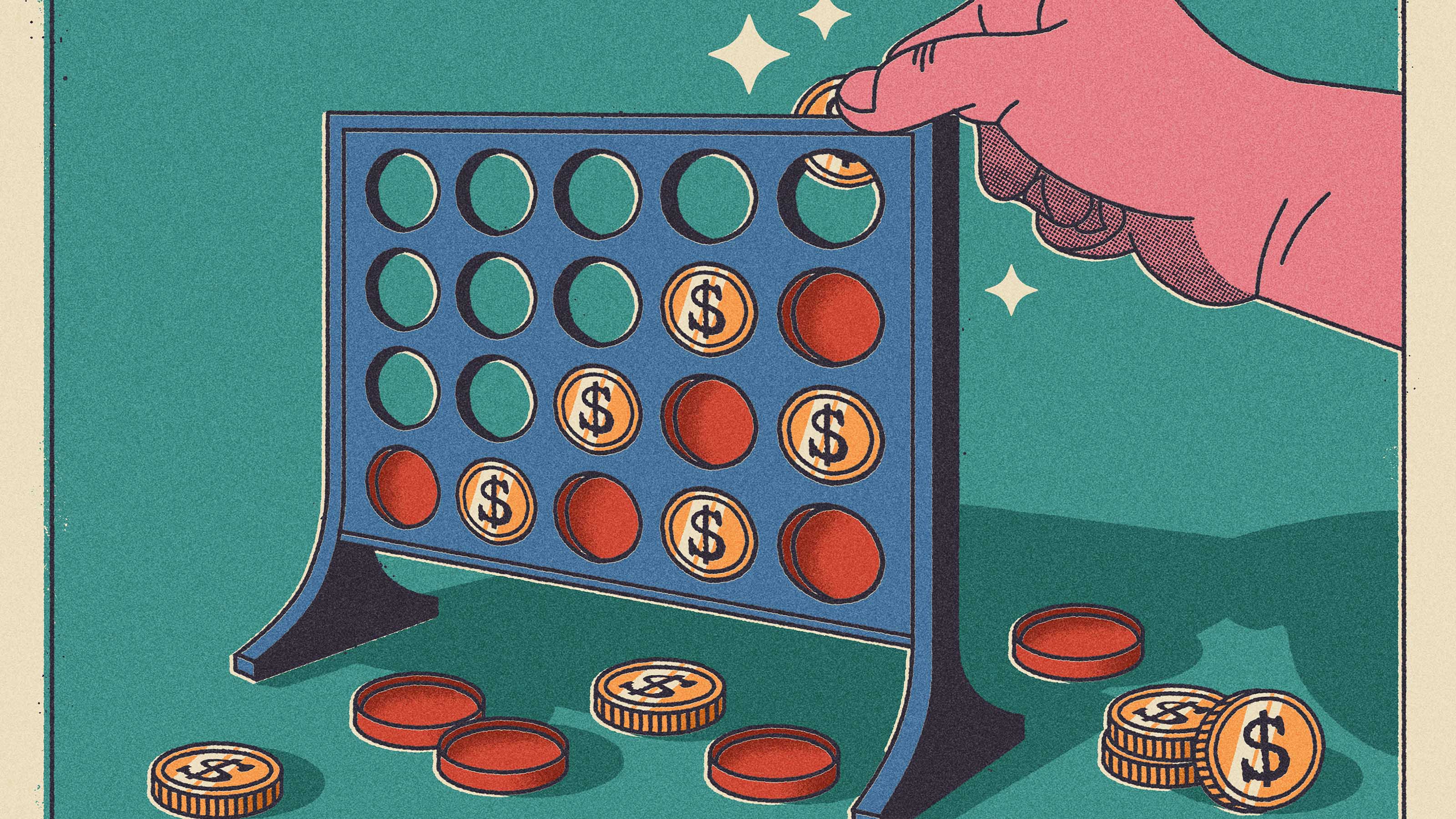Key to Investing Success: Knowing When to Sell Your Stocks
I own several stocks I should have sold, but a stubborn adherence to a buy-and-hold philosophy prevented me from pulling the trigger.

Profit and prosper with the best of Kiplinger's advice on investing, taxes, retirement, personal finance and much more. Delivered daily. Enter your email in the box and click Sign Me Up.
You are now subscribed
Your newsletter sign-up was successful
Want to add more newsletters?

Delivered daily
Kiplinger Today
Profit and prosper with the best of Kiplinger's advice on investing, taxes, retirement, personal finance and much more delivered daily. Smart money moves start here.

Sent five days a week
Kiplinger A Step Ahead
Get practical help to make better financial decisions in your everyday life, from spending to savings on top deals.

Delivered daily
Kiplinger Closing Bell
Get today's biggest financial and investing headlines delivered to your inbox every day the U.S. stock market is open.

Sent twice a week
Kiplinger Adviser Intel
Financial pros across the country share best practices and fresh tactics to preserve and grow your wealth.

Delivered weekly
Kiplinger Tax Tips
Trim your federal and state tax bills with practical tax-planning and tax-cutting strategies.

Sent twice a week
Kiplinger Retirement Tips
Your twice-a-week guide to planning and enjoying a financially secure and richly rewarding retirement

Sent bimonthly.
Kiplinger Adviser Angle
Insights for advisers, wealth managers and other financial professionals.

Sent twice a week
Kiplinger Investing Weekly
Your twice-a-week roundup of promising stocks, funds, companies and industries you should consider, ones you should avoid, and why.

Sent weekly for six weeks
Kiplinger Invest for Retirement
Your step-by-step six-part series on how to invest for retirement, from devising a successful strategy to exactly which investments to choose.
Four years into my experiment to see whether an educated amateur stock picker could beat the market, my Practical Investing portfolio has become an advertisement for index funds. After nearly three years of staying even with, and occasionally outpacing, my benchmark—Vanguard Total Stock Market ETF (symbol VTI)—my stocks slipped in late 2014 and, frankly, stunk in 2015. The portfolio, which was originally worth $200,000 and is now valued at about $280,000, has returned an annualized 8.4% since its launch in October 2011, compared with an average of 14.7% per year for the ETF.
To be sure, these are tough times for value investors (which I consider myself to be). Not long ago, CNN Money led a story like a children’s book to describe Warren Buffett’s recent performance: “Warren and the terrible, horrible, no good, very bad year.” Among Buffett’s top holdings are American Express, International Business Machines and Wal-Mart Stores, all big losers in 2015.
One manager’s redemption. Meanwhile, FPA Crescent, comanaged by Steve Romick, another of my investing heroes, is trailing Standard & Poor’s 500-stock index for the fourth straight year. True, it’s a bit unfair to compare Crescent, a member of the Kiplinger 25, with the S&P 500 because Crescent is not a pure stock fund. Still, Romick strives for stock-like returns and has beaten the market over the course of Crescent’s 22-year existence. His greatest triumph came after Crescent lagged the market badly during the late 1990s, when dot-coms and large-company growth stocks were all the rage. Then came the 2000–02 bear market, and growth and tech stocks cratered. The S&P 500 fell three years in a row, but Crescent made money each year.
From just $107.88 $24.99 for Kiplinger Personal Finance
Become a smarter, better informed investor. Subscribe from just $107.88 $24.99, plus get up to 4 Special Issues

Sign up for Kiplinger’s Free Newsletters
Profit and prosper with the best of expert advice on investing, taxes, retirement, personal finance and more - straight to your e-mail.
Profit and prosper with the best of expert advice - straight to your e-mail.
I mention this not to imply that my portfolio will rise like a phoenix, as Crescent did. Rather, it’s to suggest that tracking the progress of long-term goals using short-term measures doesn’t make sense. We tend to measure performance over the course of a calendar year. Yet to gauge properly whether a strategy is working, you need to measure results over market cycles—from one peak to the next, with a bear market in between—not “lunar cycles or any other arbitrary metric,” Romick says.
Over the past few years, growth has been in vogue, meaning investors have favored firms that typically command high, sometimes exorbitant, valuations. If I tried to buy those kinds of stocks in pursuit of beating an index over the short run, I might lose sight of my long-term goal of buying high-quality companies at fair prices.
That said, it pays to look at your progress against the market every so often and evaluate what you’re doing right and what you’re doing wrong. Frankly, although I’d like to think I have done some things right, a critical look at my performance reveals a glaring shortcoming: I hate to sell.
Knowing when to sell is as important as knowing what to buy. I own several stocks I should have sold in recent years, but my inherent optimism and a stubborn adherence to a buy-and-hold philosophy prevented me from pulling the trigger. I should have dumped Acacia Research (ACTG) two years ago, when Congress began to scrutinize outfits, such as Acacia, that help businesses protect their patents. When oil prices plunged and it became clear that they would stay low for a long time, I should have sold my energy stocks. When Latin American economies started to slide, I should have let go of Panamanian airline Copa Holdings (CPA). As far as these stocks go, I’m still weighing my options.
Many pros advise investors to review each holding periodically and ask themselves, “Would I buy that stock today?” If the answer is no, it may be time to unload. I’m taking that advice to heart. My investing resolution for 2016 is to be a better seller.
Profit and prosper with the best of Kiplinger's advice on investing, taxes, retirement, personal finance and much more. Delivered daily. Enter your email in the box and click Sign Me Up.

-
 Nasdaq Leads a Rocky Risk-On Rally: Stock Market Today
Nasdaq Leads a Rocky Risk-On Rally: Stock Market TodayAnother worrying bout of late-session weakness couldn't take down the main equity indexes on Wednesday.
-
 Quiz: Do You Know How to Avoid the "Medigap Trap?"
Quiz: Do You Know How to Avoid the "Medigap Trap?"Quiz Test your basic knowledge of the "Medigap Trap" in our quick quiz.
-
 5 Top Tax-Efficient Mutual Funds for Smarter Investing
5 Top Tax-Efficient Mutual Funds for Smarter InvestingMutual funds are many things, but "tax-friendly" usually isn't one of them. These are the exceptions.
-
 The Most Tax-Friendly States for Investing in 2025 (Hint: There Are Two)
The Most Tax-Friendly States for Investing in 2025 (Hint: There Are Two)State Taxes Living in one of these places could lower your 2025 investment taxes — especially if you invest in real estate.
-
 The Final Countdown for Retirees with Investment Income
The Final Countdown for Retirees with Investment IncomeRetirement Tax Don’t assume Social Security withholding is enough. Some retirement income may require a quarterly estimated tax payment by the September 15 deadline.
-
 Vanguard Is 50! Here's How It Has Made Investing Better
Vanguard Is 50! Here's How It Has Made Investing BetterVanguard was established by John C. Bogle in May 1975, and the fund manager's impact on investing has been revolutionary.
-
 I Have $20,000 to Invest. What Should I Do?
I Have $20,000 to Invest. What Should I Do?We asked a financial expert to weigh in on where to invest $20,000.
-
 How to Master Index Investing
How to Master Index InvestingIndex investing allows market participants the ability to build their ideal portfolios using baskets of stocks and bonds. Here's how it works.
-
 16 Low-Cost ETFs to Buy
16 Low-Cost ETFs to BuyExpense ratios for index funds have declined in recent years, making them a cheap investing strategy to consider. Here are 16 low-cost ETFs to consider.
-
 How to Beef Up Your Portfolio Against Inflation
How to Beef Up Your Portfolio Against Inflationinvesting These sectors are better positioned to benefit from rising prices.
-
 Taxable or Tax-Deferred Account: How to Pick
Taxable or Tax-Deferred Account: How to PickInvesting for Income Use our guide to decide which assets belong in a taxable account and which go into a tax-advantaged account.